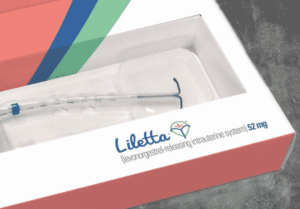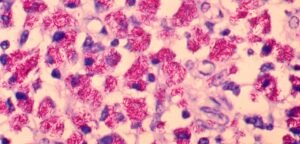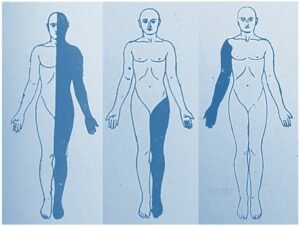Natural Remedies for an Enlarged Prostate
Natural Remedies for an Enlarged Prostate
Read Time: 9 mins
An enlarged prostate, medically known as benign prostatic hyperplasia (BPH), is a common condition that affects many men as they age. The symptoms can include difficulty starting urination, incomplete bladder emptying, painful urination, frequent urination, or waking up multiple times at night to urinate. While your doctor may suggest medications or even surgery, natural remedies can help manage these symptoms. Below are some effective herbs, supplements, and lifestyle changes that may aid in reducing prostate enlargement.
Saw Palmetto: A Natural Solution for BPH
Saw palmetto (Serenoa repens) is one of the most researched herbs for treating BPH. Some studies have shown that it can relieve symptoms of BPH, such as urinary difficulties. In fact, a 2021 study found that saw palmetto extract provided significant relief compared to medications like Flomax (tamsulosin), with fewer side effects such as ejaculation issues and low blood pressure. The recommended dosage of saw palmetto is 160 to 320 mg twice a day.
Pygeum: Traditional Remedy with Modern Benefits
Pygeum, derived from the bark of the African cherry tree, has been used for centuries in African medicine to treat urinary symptoms. In Europe, pygeum extracts have been utilized in prescription medications for BPH since 1969. While supplements cannot claim to treat or prevent diseases, they can offer relief. A typical dosage is 50 to 100 mg twice a day for effective results.
Rye Grass Pollen: Promising for Prostate Health
Rye grass pollen (Secale cereal) is another supplement often used for managing BPH symptoms. Research suggests that rye grass pollen extracts can help improve urinary tract function and reduce BPH-related symptoms. However, additional studies are needed to better understand its long-term effects and effectiveness when used alone.
Soy: A Controversial Remedy
Soy has been debated for its potential effects on prostate health. While some studies suggest it may reduce the risk of prostate cancer, its impact on BPH symptoms remains inconclusive. Research has not found strong evidence to support its effectiveness in treating BPH, although it might help lower the risk of prostate cancer in individuals at higher risk.
Omega-3 Fatty Acids: Heart and Prostate Benefits
Omega-3 fatty acids, primarily found in fish oils, are known for their heart health benefits. Some studies indicate that omega-3s can enhance the effects of conventional BPH medications, such as tamsulosin and finasteride. Men taking omega-3 supplements along with these medications had better symptom control and a smaller prostate size.
Lycopene: A Powerful Antioxidant for Prostate Health
Lycopene, a potent antioxidant found in tomatoes, has been shown to support prostate health. Research suggests that lycopene may help prevent or alleviate BPH symptoms due to its anti-inflammatory and anticancer properties. Incorporating lycopene-rich foods like tomatoes into your diet can be beneficial for maintaining prostate health.
Green Tea: Anti-inflammatory Benefits for the Prostate
Green tea, rich in polyphenols like epigallocatechin-3-gallate (EGCG), has multiple health benefits, including anti-inflammatory effects and immune system support. Studies show that green tea supplements can improve urinary symptoms associated with BPH, such as urine flow and physical function. However, further research is needed to confirm its overall efficacy.
Nettle: A Natural Anti-inflammatory for BPH
Nettle (Urtica dioica) is another herb used to alleviate BPH symptoms. It contains compounds like phytosterols and lignans that may help reduce inflammation and improve urinary function. A study found that nettle extract could reduce prostate size and improve symptoms when taken at a dosage of 400 to 600 mg daily.
Zinc: Essential for Prostate Health
Zinc plays a crucial role in prostate health, with the highest concentrations found in the prostate. Some studies suggest that a zinc deficiency may increase the risk of prostate enlargement and cancer. Although research on zinc supplementation for BPH is limited, it’s important to ensure adequate intake. A typical dosage for prostate health is 25 to 50 mg per day.
Cranberries: Supporting Urinary Tract Health
Cranberries (Vaccinium macrocarpon) can improve lower urinary tract symptoms associated with BPH. A study showed that cranberry powder supplements helped improve urine flow and reduce residual urine volume after bladder emptying. A higher dose of 500 mg per day was found to be more effective than lower doses.
Pumpkin Seeds: Natural Relief for BPH Symptoms
Pumpkin seeds have been shown to help reduce the symptoms of BPH, including frequent nighttime urination (nocturia). A study indicated that unprocessed pumpkin seeds significantly improved prostate health and overall quality of life. Their high zinc content may also help shrink an enlarged prostate.
Fireweed: Traditional Herb for Prostate Health
Fireweed (Epilobium species) has been used for centuries to treat BPH symptoms. It is often combined with other herbs like Pygeum or saw palmetto. While fireweed may help alleviate symptoms such as urinary urgency, more research is needed to determine its effectiveness when used alone.
Lifestyle Changes for Managing BPH
In addition to herbal treatments, certain lifestyle changes can help manage BPH symptoms. These include:
-
Maintaining a Healthy Weight: Obesity can worsen BPH symptoms, so maintaining a healthy weight through diet and exercise can be beneficial.
-
Avoiding Bladder Irritants: Reduce the intake of caffeine, alcohol, and spicy foods, which can irritate the bladder and worsen urinary symptoms.
-
Regular Exercise: Physical activity can help maintain prostate health and improve urinary function.
-
Hydration: Staying hydrated is important, but avoid drinking excessive fluids before bedtime to reduce nighttime urination.
Consult a Healthcare Professional
Before starting any herbal remedy or supplement, it’s important to consult with a healthcare provider. They can help determine the best course of action based on your individual health needs and ensure that the natural remedies do not interact with any medications you may be taking.
Conclusion
Natural remedies, such as herbs, supplements, and lifestyle modifications, can offer relief for those suffering from BPH. While these treatments may not cure the condition, they can help alleviate symptoms and improve quality of life. Always seek guidance from a healthcare provider before trying new treatments to ensure safety and effectiveness.









